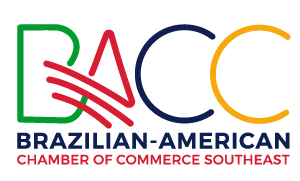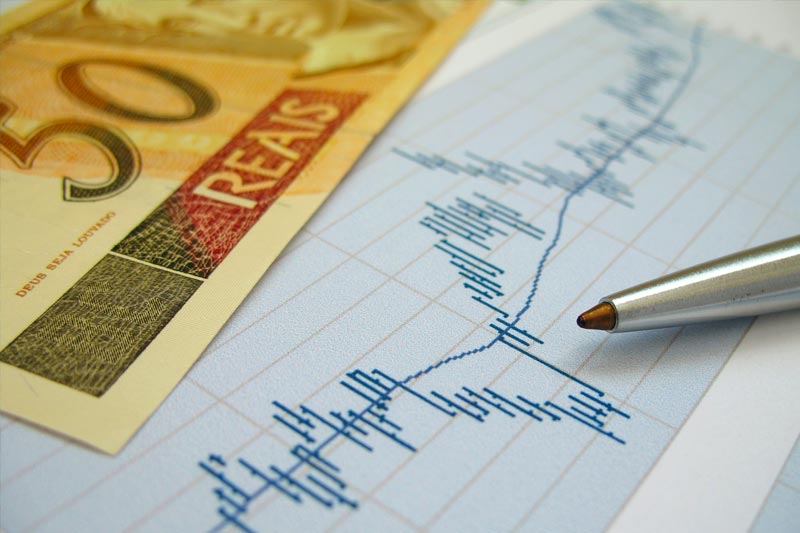
Alert: COVID-19 Tele-commuting and Cybercrime
May 27, 2020
Brazil Invests in Public Works to Promote Economic Recovery After Crisis
May 27, 2020The Brazilian-American Chamber of Commerce of the Southeast continues to observe the recovery of the Brazilian economy. Based on the review of several authorities and sources cited at the end of this article, we’re optimistic that the economy is recovering sufficiently to warrant a close look at investment opportunities in the country. If you agree, we encourage you to seek advice from your financial advisor and accountant. Nothing herein is intended as financial advice.
Since Brazil has begun to recover from a lengthy recession that started in 2014, earnings opportunities in the Brazilian stock market have improved. Profits of Brazilian companies not only have continued to grow, but they are also returning to levels enjoyed prior to the recession, which has led to growth in ROE (return on equity), a common measure of corporate profitability.
The contribution of trade to the Gross Domestic Product (GDP) of Brazil is very small, indicating that it’s still a relatively closed economy and, therefore is less affected by the continuing tensions between China and the United States. In truth, it is thought that Brazil can benefit from this commercial tension, because its agricultural products, like soy, for example, are reaching record production levels. It’s anticipated that economic growth in 2020 will be driven by corporate investment and increased consumer spending. In the second quarter of 2018, those two areas (financial investment and consumption) represented approximately 18% and 64% of Brazil’s GDP. Brazilian GDP grew at 0.3% annually in real terms and reached $34,533 BRL (about $7,300 USD at current exchange rates) per capita in 2019.
Benefiting from an improved labor market and consumer confidence, together with increased consumer credit, it is expected that Brazil’s internal consumption will accelerate growth during the next two years. Since starting to emerge from the recession, the labor market in Brazil has not recovered at the same rate; the unemployment rate in the fourth quarter of last year was 11.8% and has since decreased to 11%. Salary growth also has remained stagnant, in part due to the increase of part-time, casual and unreported jobs.
Also, since there are many workers who have exited the Brazilian labor market, there is a lot of room for economic expansion based on a readily available workforce. A labor market with solid salary growth and job opportunities is a necessary factor to augment purchasing power and consumption.
Consumer confidence in Brazil has increased since the 2019 presidential elections, which should bolster the improvement of the Brazilian labor market. Based on the current level of consumer credit, supported by relatively low-interest rates (4.25%), a recovery in consumption driven by easier credit policies is a logical expectation. Measuring the total formation of fixed capital for investment is another factor that may propel economic growth in Brazil. Also, the favorable low-interest-rate environment and growing business confidence by companies should augment investment.
In 2018, the Brazilian stock market rose 14.7%, while in 2019, it upped another 16.8%, and is predicted to rise by 9.6% in 2020. On this basis, it is hoped that the stock market will continue to furnish investors with an attractive return. In less than 4 years, the Brazilian stock market and the number of small investors has practically doubled in size. Low-interest rates and moderate inflation provide support to a stronger corporate profit level, so it is hoped that the rates will both stay relatively low in the next two years. The inflation rate in 2019 was 3.94% and is at 3.87% so far in 2020, while interest rates were above 6% for much of 2019 but are now headed towards 4.00% still in 2020. Corporate earnings of Brazilian companies are expected to grow significantly in 2020.
Financial advisors are particularly optimistic in relation to the industries that serve the internal Brazilian market, like Finance, Essential Goods and non-Essentials for industry and the consumer because they are less affected by external risks, such as interruptions in supply chains and decrease in global demand that can arise from a Chinese-American trade war. These industries are less dependent on commodities prices and are less subject to government interference than are a great number of Brazilian state companies.
The profit growth in stocks and the São Paulo Bovespa Market Index could indicate that there is room for additional growth in the Brazilian market in 2020. Based on these evaluations, it is believed that the Brazilian market is worth a close look again.





